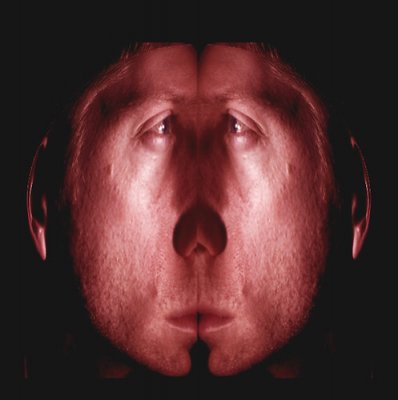Confused Thoughts – Worried You Are ‘Losing Your Mind’?

photo by: Daniel Mingook
by Andrea M. Darcy
Do you have confused thoughts lately? Worried about what it might mean for your mental health?
What is confused thinking?
We all at some point have an overly busy mind. Research now shows that confusion is, for example, part of the brain’s way of learning.
If you recognise that your strange or confused thoughts are just thoughts, and if they don’t affect your identity or ability to cope, then it’s not likely an issue.
When disorganised thoughts are part of a mental health issue, they start to adversely affect your daily life. You might find it hard to have a clear enough line of thought to make a decision, struggle to speak and socialise, or start acting in ways that aren’t usual for you.
At it’s extreme, confused thinking leads to a break from reality, where you believe things to be real that actually aren’t, and you aren’t sure who you are.
Research from the University of California, for example, found that those with schizophrenia have an impaired ability to relate their memories to themselves.
What are confused thoughts a symptom of?
First and foremost check that it’s not a physical health issue, particularly if it comes with other medical symptoms. There are several things that can cause confused thinking, including a head injury, infection, a reaction to medication, and of course things like recreational drugs, alcohol abuse, or not sleeping for several days.
And if you are aged, and your confused thinking has persisted for some time and is worsening, it’s worth seeing a doctor to discuss the possibility of dementia.
Confused thoughts and mental health issues
In psychology, ‘disorganised thinking’ refers to consistent problems with the way you think that include thinking things are real that aren’t (delusions). In this case you will be diagnosed as having a thought disorder, such as schizophrenia.
But this is one end of the spectrum. Confused thoughts, or even an occasional delusion, can be another mental health issue entirely, including things like stress and anxiety, or borderline personality disorder (BPD).
What are your confused thoughts a symptom of?
So how do confused thoughts relate to different mental health issues?
Stress.
- Are your thoughts racing and panicked because of a challenge ahead or unexpected event?
- Frantically going over options?
- Feel like your head might ‘explode’ with panic?
- Or you are ‘losing the plot’?

By: versionz
You are simply stressed. If someone helps you with the problem, and a solution is found, then your thoughts should return to normal.
Anxiety.
- Solve one problem, only to start to have negative thoughts about something else?
- Also have feelings of fear and panic?
- Are your thoughts mostly about a possible terrible future?
Anxiety is when our mind engages in negative, future-based thought loops. It can seem close to delusions as your thoughts might start to be quite illogic. But in general, anxious thoughts are not impossible or ‘unreal’, just unlikely and ‘worst case scenario’.
Depression.
- Are your thoughts slower than usual?
- Feel spacey and exhausted, as if your head is filled with sand?
- And the thoughts you are having are very negative, doom and gloom?
- Are there are also thoughts against yourself? Putting you down?
Your disorganised thinking can be caused by depression.
Obsessive thinking.
- Do dark, twisted, or even sexual and violent things seem to jump into your mind from nowhere?
Do you feel embarrassed and ashamed? - Then you have to think or do something to ‘fix’ the fact you had that thought?
Also called ‘intrusive thoughts’, obsessive thoughts are often of things you feel ashamed to think about. They often then lead to ‘compulsions’, where you feel compelled to do something. For example, if you have an intrusive thought that someone you love will be murdered in a horrific way, you can feel you have to tap everything you pass twice to stop this from happening.
Psychosis and schizophrenia.
- Do you find your thoughts are so strange and jumbled you aren’t sure they are your own?
- Or you can’t seem to speak clearly anymore?
- Have your thoughts made you want to avoid other people more?
- Are you worried someone is out to get you? Or think you have special powers?
- Has someone told you that what you think is not at all true?
- Have you also seen, heard, or felt things that other people say aren’t true, either?
Psychosis is a mental health symptom that can involve confused thinking, delusions (beliefs things are real that aren’t, like thinking you have special powers or someone is spying on you) and hallucinations (sensing things that aren’t actually there, such as hearing voices).
Schizophrenia is a mental health disorder that involves psychosis, but can also include things like depression, social difficulties, and unpredictable behaviours.
What would all that look like in action?

By: Kim
So let’s take an example and look at how confused thoughts could play out, pending the mental health issue.
A woman is getting married, and finds out her dress is going to be ready the morning of the wedding instead of the day before.
Stress could lead to thoughts like, I have so much to do how on earth can I get it picked up, everyone will be at the rehearsal, and then what if someone doesn’t make it to the shop before it closes? I can’t think straight to figure this out…
Anxiety would be more illogic and go further into the future. What if I end up with no dress, the entire wedding is canceled, my partner decides I am so unorganised he doesn’t want to marry me after all, and I end up alone living in a cardboard box on the road?
Depression would think, I’m doomed. I’m just useless at being organised, how did I ever think I could pull off a marriage? I just want to cancel the whole thing and give up and crawl under the duvet.
Obsessive thinking would decide, if I don’t pick up the dress by ten in the morning then someone will have a heart attack and die at the wedding, and it will be all my fault. I have to pick it up at exactly ten. On the nose. I will sit in my car and at 9:58 get out and walk to the door and open it at exactly 10.
Psychosis could sound like, it’s because someone is trying to sabotage this. Maybe the dressmaker is actually a spy sent by my ex, trying to ruin everything. She’s sending the dress late as she’s implanting tiny cameras in it.
Confused thinking and personality disorders
A personality disorder means you see the world differently than an average person, and have done since adolescence or early adulthood. And this affects most areas of your life, including the way you relate to others, who find the ways you think confusing.
Borderline personality disorder in particular is a personality disorder that causes disordered thinking. Involving a strong fear of rejection and abandonment, the moment you think you are going to be pushed aside you can have such overwhelming fear and sadness that you think wildly negative things.
This can unfortunately lead to impulsive, destructive action. A partner doesn’t text back for several hours, so you decide they will break up with you and send mean texts dumping them first. Meanwhile, they forgot their phone at home.
Do I need therapy for my confused thoughts?
Talk therapy is an excellent tool to help you if your confused thoughts are affecting you negatively. Cognitive behavioural therapy (CBT) in particular is recommended for stress, anxiety, depression, OCD and psychosis. It focuses on helping you recognise and challenge distorted thinking, then turn it into balanced thinking instead.
If you have borderline personality disorder, there are several types of therapy that help, including dialectical behaviour therapy (DBT).
Ready to put a stop to your confused thinking and gain clarity? We connect you with a team of highly experienced therapists in central London. Or use our online directory to book UK-wide registered therapists and online counsellors.
 Andrea M. Darcy is a writer, author, and coach. Find her @am_darcy
Andrea M. Darcy is a writer, author, and coach. Find her @am_darcy





Hi. I’m Avura from Nigeria. I came across this article while checking for similar symptoms with my ordeal and its causes. I find that i have symptoms related to bpd and also personality disorders and i also find it challenging gathering thoughts or concentrating on a particular task because if i find it challenging the next tendency is to run away. It has impaired my learning and my whole life greatly and i would like help to get back to normal.
Hi Avura, it would be great if you could go talk to a professional, a psychiatrist, who could really get to know you and give you a proper diagnosis if required. Note that borderline personality disorder shares many symptoms with adult ADHD (attention deficit hyperactivity disorder) and that ADHD can sometimes be misdiagnosed as BPD. What you are describing sounds more like ADHD, but we don’t know you so we really can’t say. Again, worth talking to a professional about. Also note that all of us can look at lists of symptoms of personality disorders and see ourselves in the symptoms, but if you have a personality disorder these symptoms will affect all areas of your life always and since you were a teen. Things like stress and trauma can also produce similar symptoms to ADHD and BPD, sometimes it’s simply a traumatised brain and the issue is resolving and healing childhood trauma. Final note. Even if we do have some sort of apparent ‘disorder’, we will also have gifts that are unique. Do remember to also focus on your strengths. Best, HT.
imolder, 78 and have hd adifficult time in life- generally not my fault, but not good at protecting self- i have sleep phobia and now thanatophobia, tho i am not unwell tho i am in pain when walking due busted back, and s few minor probs- i am still strong- lately hunsolved stuff near and far, has made me deprssed, and its vile- but i soldier on- no extra help wen i wake i’m fine- soon te nasty feelings of boredom, and probs cganging things come- also my thoughts tur anxious and go all over place as i simply cannot solve a particular prob really and thst is being unsable to get back to london- jiloften still, i can feel ok-oc even ‘hsppy’ not high-or enjoy life- URGENT needed v good shrink as complex-and strange past-
I need help with my thought. If someone can tell me what can I do to fix my thought is now 4 mothers
Inhave been diagnosed with Bipolar Disorder and in retrospect had symproms since I was 15 yrs old. I continue to have racinf and scattered thought which interfers with my abillity to do my job.! Do you recommend a different medication? I am taking Lamicttal 300mg every morning witth sertraline 100mg and was just put on vrylar and still have scattered thoughts. What is wrong with this picture?
I have scattered thoughts and in a state of confusion most of the time.,i was diagnosed as having bipolar disorder after wanting to stab myself in the heart with a particular knife and was hospitalized for that in 2015. Why can’t i think logically.and organized any more? My daughter says I’m still cycling and am a rapid cycler
Estoy pasando momentos difíciles ahora mismo ,ya hace horas he llorado sin consuelo, la cabeza parace que me estallará de dolor agudo,hace solo unas horas pensaba en el suicidio como unica opcion , nada mejor me venía a la mente,ya me esta pasando aunque no le veo solución a mi vida,tengo un complejo de inferioridad que no kisiera tener que hablar ni interactuar con nadie,se que tengo una fuerte depresión, ya me atiendo con una doctora Squiatra y tengo tratamiento, pero para decir la verdad muchas veces tengo fuertes recaídas, trato que nadie lo sepa pero mi esposo que esta a mi lado esta teniendo que cargar conmigo y sé que eso lo altera ,ya no tengo deseos de seguir con mi vida, x favor a todas esas personas que padecen estas enfermedades que se atiendan en tiempo para que no les pase lo que ami ,ya mi enfermedad no tiene cura,solo una pequeña situación me lleva a este estado ,perdón x este comentario, se que esto me ayuda a desogarme un poquito, también de que muchas personas pueden sentirse como yo ,y lo más difícil de todo es que no considero que tenga una enfermedad Squiatrica ,x favor si alguien me puede ayudar a vencer estos males con algunos consejos, aquí les dejo mi dirección de correos.
hi i need help but dont have the funs for it. im currently working and struggling to make end meat because the cost of living in south africa is high. i realy need help but dont want to lose everything like my family and job i need to provide for them. i did not talk to anyone because just now they send me away. i thing i have this Psychosis
I am called Innocent,I am suffering from unrealistic thoughts about ASMR .
What can i do to stop it?